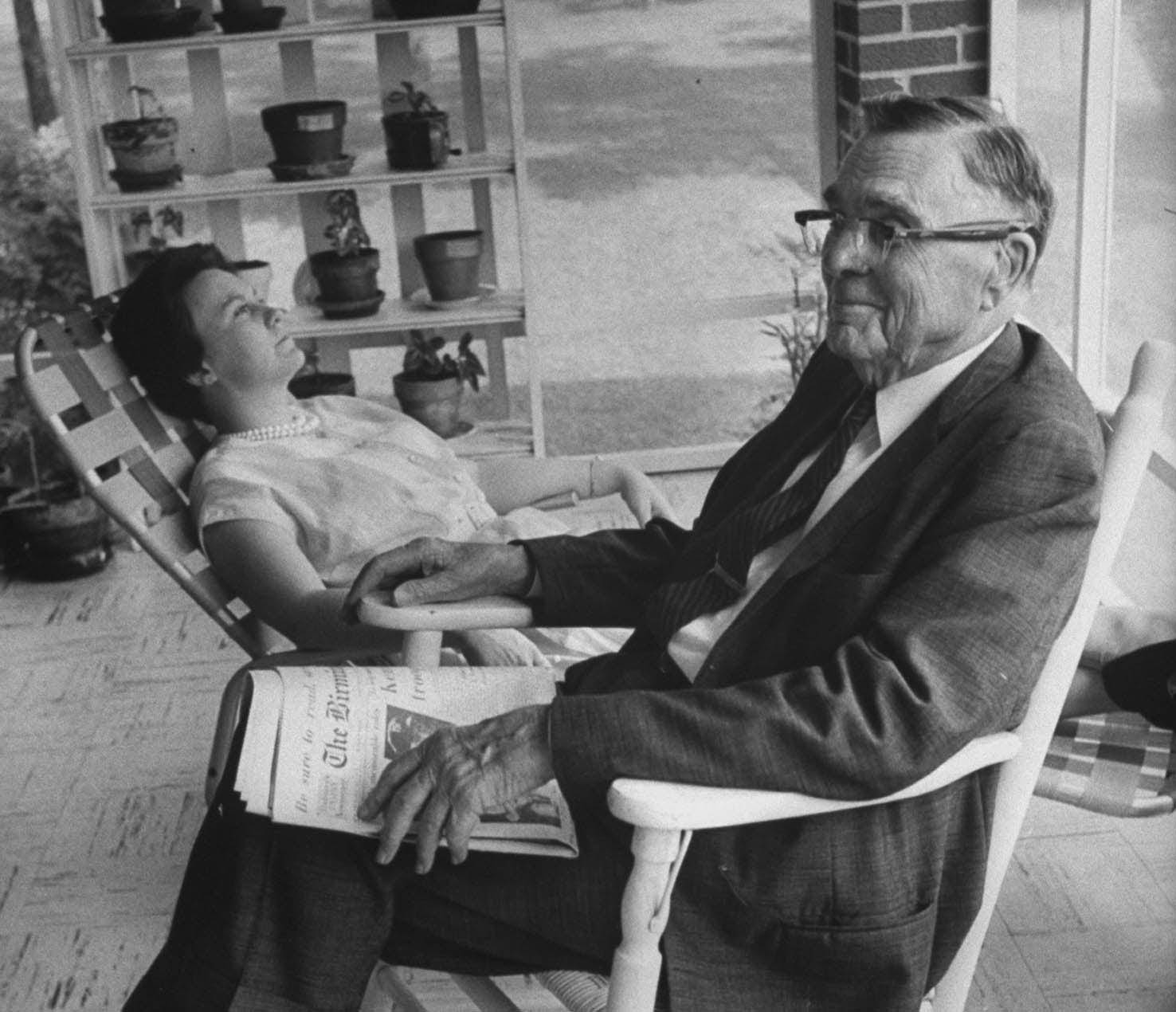Anger as Go Set A Watchman exposes bigoted Atticus Finch: True nature of Harper Lee's hero can be explained by her father
Amasa Coleman Lee changed his views on segregation while Lee was writing Mockingbird

The reviews of Go Set A Watchman published this weekend expose Atticus Finch, the upstanding hero of Harper Lee’s To Kill A Mockingbird, as a former Klu Klux Klan member, racist and fan of segregation.
Jean Louise “Scout” Finch’s father, the moral backbone of Lee’s Pulitzer Prize-winning Mockingbird, is presented in its sequel as a gnarled old man, bent and ailing from rheumatoid arthritis, whose views on race are as knotted as his fingers and whose daughter is deeply disappointed in him.
Fears that this hugely different insight into Atticus, played with poker straight goodness by Gregory Peck in the 1962 movie, will mar the legacy of Mockingbird are already being expressed despite Watchman not even having hit shelves yet.
But according to Lee’s biographer, her father, Amasa Coleman Lee, on whom Atticus was based, actually started out as a segregationist and only changed his views while Lee was writing Mockingbird.
Watchman, written before 1957, was an early draft of Mockingbird and the story changed dramatically when Lee’s publisher requested that she rewrite it to focus on Scout’s Depression-era childhood.
Published as a sequel and premised upon a 26-year-old Scout’s return to Alabama to visit her elderly father, Watchman is set in the 1950s not long after the Brown v Topeka Board of Education ruling of 1954.
That legislation reversed the legal basis for segregation in America, but against a backdrop in the South of Jim Crow laws, all-white juries and a gathering Civil Rights movement, it would take more than 30 years, and affirmative action such as the busing in of black students to white neighbourhoods, for things to change.
Some have argued that the timescale of Lee’s novel makes it extremely unlikely that the Atticus we meet in Mockingbird would have really defended a black man wrongly accused of rape or expounded the “equal rights for all, special privileges for none” maxim so often quoted of the character. So entrenched were the racist views of the time.
In Watchman Atticus asks Jean Louise, aka Scout: “Do you want Negroes by the carload in our schools and churches and theaters? Do you want them in our world?”
Best summer reads 2015
Show all 23Lee's biographer, Charles J Shields, who wrote Mockingbird: A Portrait of Harper Lee, believes that the glowing portrait of her father as Atticus in Mockingbird is a reflection of a change of heart that Amasa had while she was writing it which led him to advocate for racial integration.
“[Amasa] was a Deep South Southerner,” Shields told The Wall Street Journal. “Up until middle-age, he agreed with the status quo: Birds of a feather flock together, white people should be around white people and black people should be around black people.”
Shields revealed that Amasa changed his stance to anti-segregation in the late 1950s – something which the biographer believes can explain the transformation of Atticus from a bigot in Watchman to a civil rights hero in Mockingbird.
“She may have been very proud of him,” Shields told the newspaper.
In a 1962 New York Herald Tribune interview Lee explained the correlation between her real father and Atticus. She said her father was “very like [Atticus] in character and – the South has a good old word for this – in ‘disposition’.”
She went on: “Then and now, he has been ahead of his time. He follows the simple Christian ethic—if anything seems a violation of that code, he doesn’t like it a bit.”
Watchman is published on Tuesday 14 July.
Subscribe to Independent Premium to bookmark this article
Want to bookmark your favourite articles and stories to read or reference later? Start your Independent Premium subscription today.

Join our commenting forum
Join thought-provoking conversations, follow other Independent readers and see their replies